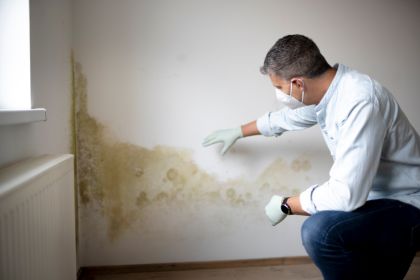
Mold, a ubiquitous fungus thrives in damp, humid environments. It can pose a significant threat to our health when we inhale its spores or mycotoxins, the toxic substances it produces.
Mold toxicity, a condition resulting from chronic exposure to these harmful elements, can manifest in a range of debilitating symptoms, often mimicking other health issues, making it a challenging condition to diagnose.
What Are the Warning Signs of Mold Toxicity?
Mold toxicity’s symptoms can vary from person to person, often mirroring those of allergies or other chronic conditions. However, some common signs that may indicate mold exposure include:
- Coughing, wheezing, shortness of breath, nasal congestion, and frequent sinus infections
- Rashes, itching, burning sensations, and persistent skin irritation
- Headaches, dizziness, fatigue, difficulty concentrating, brain fog and memory problems
- Nausea, vomiting, diarrhea, abdominal bloating, and food sensitivities
- Nutritional deficiencies and, challenges with weight loss
- Anxiety, depression, mood swings, and irritability
Seeking Professional Guidance
If you suspect mold toxicity, consulting a qualified healthcare professional is crucial. A thorough evaluation can help rule out other potential causes of your symptoms. Your provider may recommend a combination of tests, including blood tests, environmental assessments, and allergy testing, to determine the extent of your exposure and develop an appropriate treatment plan.
Combating Mold Toxicity
Treating mold toxicity often involves a multifaceted approach, addressing the immediate symptoms and the underlying cause. This may include:
- Environmental Remediation: Identifying and eliminating the source of mold growth is essential to prevent further exposure. This may require professional mold remediation services.
- Supportive Therapies: Nutritional supplements, detoxification protocols, and immune-boosting therapies can help the body heal and eliminate accumulated toxins.
- Lifestyle Modifications: Reducing stress, improving sleep patterns, and adopting a healthy diet can support the body’s natural healing processes.
Prevention is Key
Preventing mold growth in your home is the most effective safeguard against mold toxicity. Here are some proactive measures you can take:
- Maintain a Dry Environment: Ensure proper ventilation, promptly address leaks and use dehumidifiers in moisture-prone areas.
- Regular Inspections: Inspect your home regularly for signs of mold growth, particularly in bathrooms, basements, and crawl spaces.
- Prompt Remediation: If you detect mold, address it immediately by cleaning affected areas with mold-killing solutions and consulting professional remediation services if necessary.
How to Remove Mold from Your Body
Nava Health is an integrative medical center offering a comprehensive approach to mold detoxification. We emphasize prevention, focusing on the root cause of the symptoms you experience. Our treatment protocols combine traditional medicine with complementary therapies, including holistic therapies where applicable. There is no one-size-fits-all approach at Nava Health; we create a personalized plan for you based on your unique lab results, medical history, and health goals.
Remember, early detection and intervention are essential to successfully managing mold toxicity.
By recognizing the signs, seeking professional guidance, and implementing preventive measures, you can empower yourself to protect your health and well-being from the hidden threat of mold toxicity.

Nour Amri is a Licensed Integrative Nutritionist, a Certified Nutrition Specialist, and a Certified Ketogenic Nutrition Specialist. She earned her Master’s degree from the Maryland University of Integrative Health. She also received her certification for mind-body medicine facilitation from Georgetown University School of Medicine. In her approach, Nour applies the principles of Integrative and Functional Nutrition, which emphasize healthy eating personalized to the client’s genetics, environment, lifestyle, and health concerns.